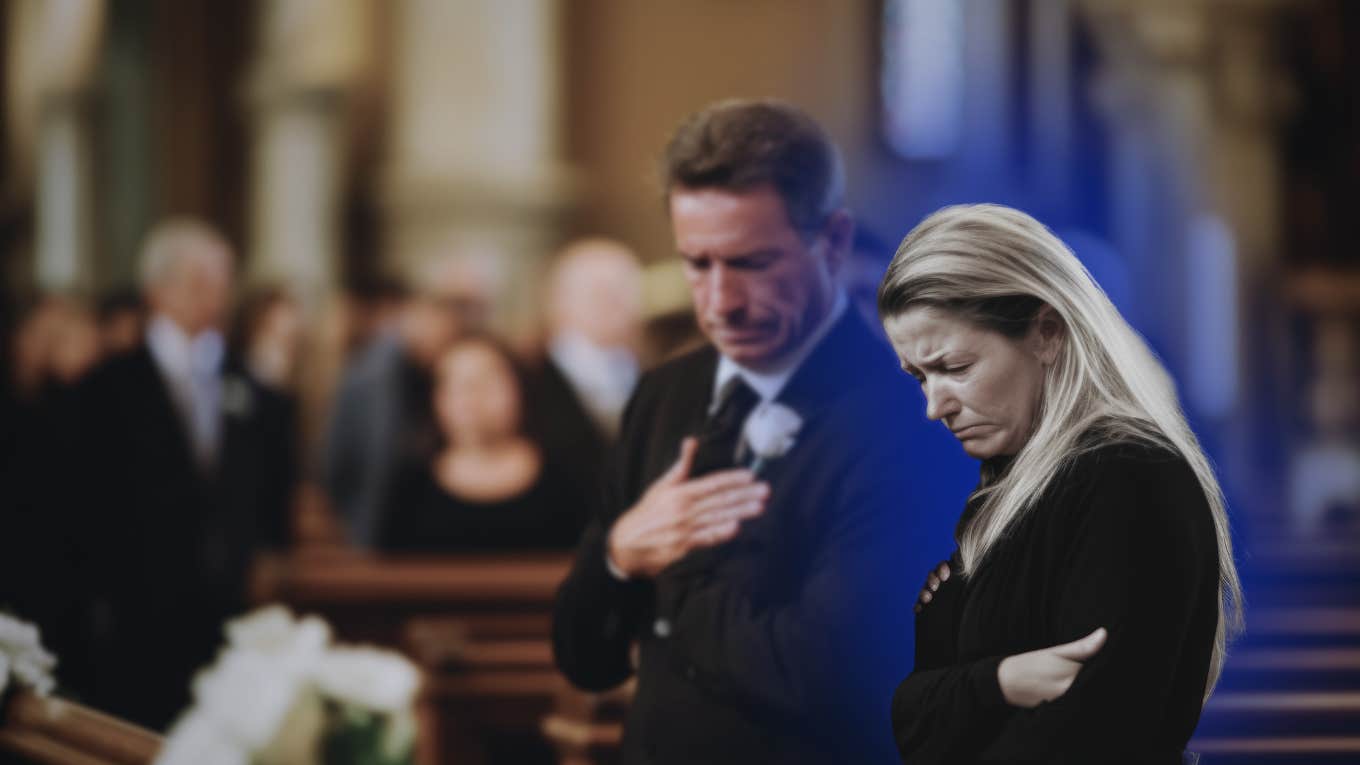How I (Barely) Survived The Death Of My Sibling
I have to live a life without her in it now.
 ASphotostudio | Canva
ASphotostudio | Canva There are many things we expect to experience in our lives, but the death of a sibling is not one of them. When it comes to realizing what grief feels like, it certainly wasn't something I thought I would deal with in my lifetime, but low and behold, in December of 1996 I lost my older sister and immediately became part of a club of sibling survivors. Being new to the club, I didn't understand the stages of grief, let alone how to grieve, and everything else that was involved. First and foremost, losing a sibling is a very lonely experience.
A lot of people didn't know what to say to me. People didn't ask how I was doing. They would ask how my parents were doing, which I understood, but no one asked how I was. It got me thinking: Was my loss less significant than my parents' loss? I'm not trying to compare the two, but my loss was substantial. I was close to my sister just as other people are close to their brothers and sisters. Losing them is having a chapter end prematurely. That person will never see you grow up. He/she won't see you married or meet your children. Your children will never get to know that brother or sister, that aunt or uncle. You can talk about them — and I certainly talk about my sister Lucy — but my girls will never truly know my sister because she is not around.
Another aspect of being a sibling survivor is that the world doesn't acknowledge our loss. If you are a widow or if your parents die, many people will come around and share that experience, but not a lot of people are out there talking about losing their siblings.
It's a feeling of being all by yourself, that there is no one else that you can talk to. Other people I have spoken to who are sibling survivors have expressed they felt guilty when talking to their parents about their loss, so they would push that down because they wanted to be strong for their parents. I certainly had that same experience. Yet, I wanted very much for my loss to be acknowledged. I wanted to be able to grieve. I grieved, but it was hard because I didn't want my parents to see me sad. In the years that have gone by, I talked to my parents about my feelings and it's been very helpful. Hopefully, if you've lost a brother or sister, you can talk to your parents in the years to come.
I'm on a mission to give a voice to sibling survivors so we aren't all by ourselves, so we can find each other if we want to talk. If we want support, there is support. It is helpful to know other people who know exactly what you're going through. Perhaps some people are slightly further down the road than you are who can look back and say, "Yes, I remember the first anniversary of the birthday or Christmas or other major events," and give suggestions on how they got through it. And perhaps that will help. I want to create a dialogue so that whether you're a sibling survivor or the friend or work colleague of a sibling survivor, you have the words and the knowledge to properly acknowledge the loss, and help yourself or a sibling survivor to continue with life and live it fully.
If you or somebody that you know is experiencing a mental health crisis, there is a way to get help. Call SAMHSA’s National Helpline at 1-800-662-HELP (4357) or text "HELLO" to 741741 to be connected with the Crisis Text Line.
Zander Sprague is an award-winning public speaker, author, and Licensed Professional Clinical Counselor. He is the author of the internationally acclaimed Making Lemonade: Choosing A Positive Pathway After Losing Your Sibling

